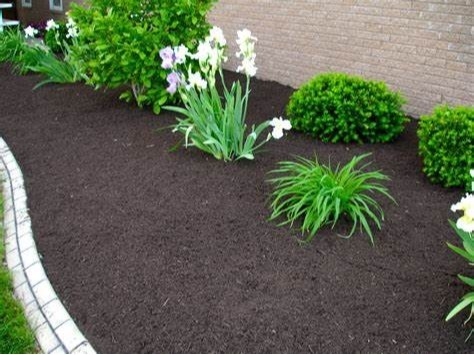How Mulching Can Help You Save Water and Reduce Your Water Bill
As you navigate the challenges of climate change and increasing water scarcity, finding effective ways to conserve water in your garden and landscape has become more crucial. One such method that not only aids in water conservation but also enhances the overall health of your plants is mulching. Let's explore how mulching can help you save water and reduce your water bill.
What is Mulch?
Mulch is recycled trees spread over the soil surface to retain moisture, suppress weeds, and regulate soil temperature. Organic mulches, such as wood chips, straw, or grass clippings, decompose over time, adding nutrients to the soil, while inorganic mulches, like gravel or landscaping fabric, provide long-lasting benefits.
Benefits of Mulching for Water Conservation
Practical Tips for Mulching
Choose the Right Mulch: Choosing a mulch that meets your garden's needs is essential. Organic options like shredded bark are excellent for vegetable gardens and other plants.
Apply at the Right Depth: Aim for a layer of mulch about 2-4 inches thick. Too little won’t provide adequate benefits, while too much can suffocate plants. Be sure to keep mulch away from the base of plants to prevent rot.
Maintain Mulch: Regularly refresh your mulch as it breaks down or is washed away. This ensures ongoing benefits for your garden and keeps your landscape looking neat.
Mulching During Planting: Incorporate mulch right after planting for immediate benefits. It sets the stage for moisture retention and weed suppression from the get-go.
Conclusion
Mulching is a simple yet highly effective technique when you're looking to conserve water and reduce your water bill. By retaining moisture, suppressing weeds, and improving soil quality, mulch enhances the health of your plants while simultaneously lessening your reliance on water. So, consider adding mulch to your gardening routine, whether you’re a seasoned or beginner gardener. Your wallet, your plants, and the environment will thank you!
Go Back What is Mulch?
Mulch is recycled trees spread over the soil surface to retain moisture, suppress weeds, and regulate soil temperature. Organic mulches, such as wood chips, straw, or grass clippings, decompose over time, adding nutrients to the soil, while inorganic mulches, like gravel or landscaping fabric, provide long-lasting benefits.
Benefits of Mulching for Water Conservation
- Moisture Retention: One of the primary benefits of mulching is its ability to retain soil moisture. By covering the soil, mulch reduces evaporation, meaning plants will have consistent access to water without frequent irrigation. This is especially beneficial in hot, dry climates where water loss can be significant.
- Weed Suppression: Weeds compete with your plants for water and nutrients. A thick layer of mulch blocks sunlight and smothers weed growth, reducing competition. This means your plants can thrive with less water as they won’t have to compete with invasive weeds for moisture.
- Temperature Regulation: Mulch helps to insulate the soil, keeping it cooler in the summer and warmer in the winter. Consistent soil temperatures support healthy root growth and reduce stress on your plants, allowing them to use water more efficiently.
- Improved Soil Structure: Organic mulches break down over time, improving soil structure and increasing its ability to hold moisture. Healthy soil retains water better and allows deeper root growth, making plants drought-resistant.
- Reduced Irrigation Frequency: With moisture retention, reduced evaporation, and healthier soil, you’ll find that your garden requires less frequent watering. This could lead to a noticeable decrease in water consumption and ultimately lower your water bill.
Practical Tips for Mulching
Choose the Right Mulch: Choosing a mulch that meets your garden's needs is essential. Organic options like shredded bark are excellent for vegetable gardens and other plants.
Apply at the Right Depth: Aim for a layer of mulch about 2-4 inches thick. Too little won’t provide adequate benefits, while too much can suffocate plants. Be sure to keep mulch away from the base of plants to prevent rot.
Maintain Mulch: Regularly refresh your mulch as it breaks down or is washed away. This ensures ongoing benefits for your garden and keeps your landscape looking neat.
Mulching During Planting: Incorporate mulch right after planting for immediate benefits. It sets the stage for moisture retention and weed suppression from the get-go.
Conclusion
Mulching is a simple yet highly effective technique when you're looking to conserve water and reduce your water bill. By retaining moisture, suppressing weeds, and improving soil quality, mulch enhances the health of your plants while simultaneously lessening your reliance on water. So, consider adding mulch to your gardening routine, whether you’re a seasoned or beginner gardener. Your wallet, your plants, and the environment will thank you!
